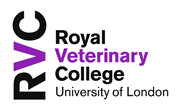About the Project
Dilated Cardiomyopathy (DCM) is a common and serious disease, which imposes a significant welfare burden in dogs. DCM is particularly well characterise in Dobermans where a 58.8% cumulative prevalence has been identified in European lines. Current therapy does not address the underlying pro-inflammatory myocardial pathology that initiates and perpetuates DCM. Our laboratory has recently generated canine cardiac stem cells and shown they possess desirable properties, which should allow them to reduce the impact of this serious disease. Stem cell therapy acts via anti-inflammatory and proangiogenic paracrine mechanisms that are significantly augmented by culturing cells under hypoxic stress. This culture technique ensures that they maintain therapeutic potency when delivered intravenously on consecutive occasion as shown in recent human trials. In this project, we will explore the impact of hypoxic preconditioning (HP) on the anti-inflammatory properties of our stem cells using established ex-vivo techniques and commence a Proof-of-concept clinical trial using intravenously delivered HP stem cells in Doberman dogs with DCM.
Aims and Objectives
The aim of the project is to measure the effect of HP on the immunomodulatory/anti-inflammatory and therapeutic capacity of canine cardiac stem cells (CDC) in the laboratory and evaluate the therapeutic benefit of CDC therapy in DCM patients.
Objectives:
a. Quantify expression and nuclear translocation of hypoxia inducible factor (HIF) in CDCs under different hypoxic conditions. Assess the effect of HP on HIF regulated pathways that generate immunomodulatory and anti-inflammatory activity of CDCs on other cell types.
b. Measure the anti-inflammatory paracrine activity of HP-CDCs in a myocardial slice explant model
c. Proof-of-concept clinical trial using intravenously delivered HP-CDC in Doberman dogs affected with DCM, quantifying cardiac function and arrhythmia frequency.
Requirements
Essential: Applicants should hold or expect to achieve a First or 2:1 degree in biological sciences preferably with an immunological bias. They should be highly motivated and proactive.
Highly Desirable: Candidates already holding or studying for a MRes qualification and having a solid grounding in laboratory techniques and cell culture.
This is a 3 year fully-funded PetPlan studentship open to Home/EU applicants. International students are welcome to apply but must be able to fund the difference between UK/EU and international tuition fees. The studentship will commence in October 2019 but could be earlier if a suitable candidate is available. If you are interested in applying for this position, please follow the link below. Please use your personal statement to demonstrate any previous skills or experience you have in laboratory research methods. We expect to interview for this position May/June 2019.
How to Apply
For more information on the application process and English Language requirements see https://www.rvc.ac.uk/study/postgraduate/phd
We welcome informal enquiries - these should be directed to: Dr David Connolly [Email Address Removed]
References
Tanaka Y, Hosoyama T, Mikamo A, Kurazumi H, Nishimoto A, Ueno K, Shirasawa B, Hamano K. Hypoxic preconditioning of human cardiosphere-derived cell sheets enhances cellular functions via activation of the PI3K/Akt/mTOR/HIF-1α pathway. Am J Transl Res. 2017 Feb 15;9(2):664-673
Dutton L, Dudhia J, Catchpole B, Huggins A, Werling D, Connolly DJ. Immunomodulatory potential of canine cardiosphere derived cells. Sci Rep. 2018 Sep 6;8(1):13351
Butler J, Epstein SE, Greene SJ, Quyyumi AA, Sikora S, Kim RJ, Anderson AS, Wilcox JE, Tankovich NI, Lipinski MJ, Ko YA, Margulies KB, Cole RT, Skopicki HA, Gheorghiade M Intravenous Allogeneic Mesenchymal Stem Cells for Nonischemic Cardiomyopathy: Safety and Efficacy Results of a Phase II-A Randomized Trial. Circ Res. 2017 Jan 20;120(2):332-340
Greene SJ, Epstein SE, Kim RJ, Quyyumi AA, Cole RT, Anderson AS, Wilcox JE, Skopicki HA, Sikora S, Verkh L, Tankovich NI, Gheorghiade M, Butler J. Rationale and design of a randomized controlled trial of allogeneic mesenchymal stem cells in patients with nonischemic cardiomyopathy. J Cardiovasc Med (Hagerstown). 2017 Apr;18(4):283-290
Luger D, Lipinski MJ, Westman PC, Glover DK, Dimastromatteo J, Frias JC, Albelda MT, Sikora S, Kharazi A, Vertelov G, Waksman R, Epstein SE. Intravenously Delivered Mesenchymal Stem Cells: Systemic Anti-Inflammatory Effects Improve Left Ventricular Dysfunction in Acute Myocardial Infarction and Ischemic Cardiomyopathy. Circ Res. 2017 May 12;120(10):1598-1613

 Continue with Facebook
Continue with Facebook

